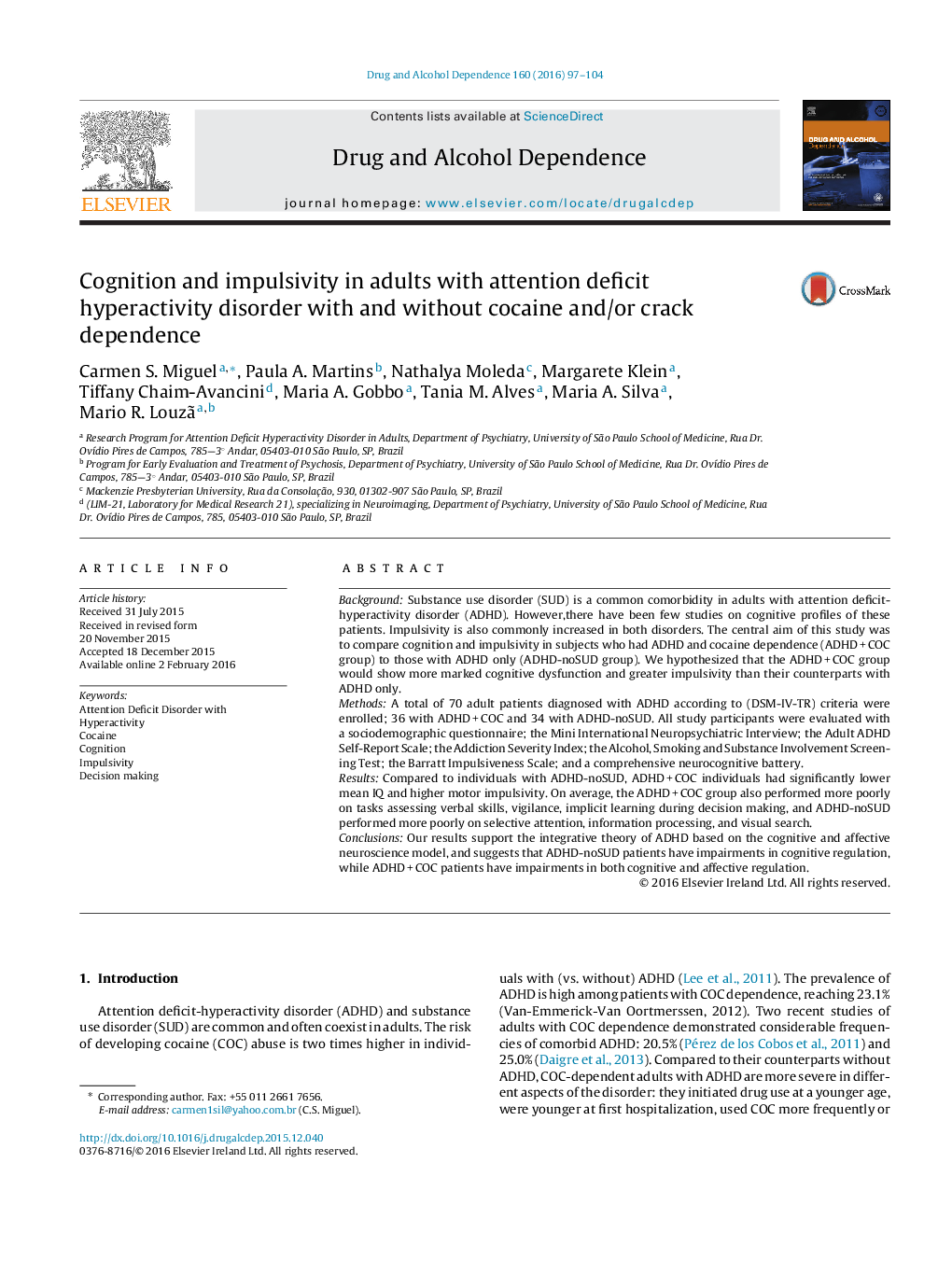| Article ID | Journal | Published Year | Pages | File Type |
|---|---|---|---|---|
| 1069710 | Drug and Alcohol Dependence | 2016 | 8 Pages |
•We compared ADHD + cocaine dependence and ADHD controls with a neurocognitive battery.•ADHD controls: slower responses, deficits in visual search and psychomotor speed.•ADHD + cocaine group: deficits in vigilance, in implicit learning in decision making.•ADHD + cocaine group: lower IQ, verbal inability and higher motor impulsivity.•Discussion of differences according to the integrative model from Nigg, Casey (2005).
BackgroundSubstance use disorder (SUD) is a common comorbidity in adults with attention deficit-hyperactivity disorder (ADHD). However,there have been few studies on cognitive profiles of these patients. Impulsivity is also commonly increased in both disorders. The central aim of this study was to compare cognition and impulsivity in subjects who had ADHD and cocaine dependence (ADHD + COC group) to those with ADHD only (ADHD-noSUD group). We hypothesized that the ADHD + COC group would show more marked cognitive dysfunction and greater impulsivity than their counterparts with ADHD only.MethodsA total of 70 adult patients diagnosed with ADHD according to (DSM-IV-TR) criteria were enrolled; 36 with ADHD + COC and 34 with ADHD-noSUD. All study participants were evaluated with a sociodemographic questionnaire; the Mini International Neuropsychiatric Interview; the Adult ADHD Self-Report Scale; the Addiction Severity Index; the Alcohol, Smoking and Substance Involvement Screening Test; the Barratt Impulsiveness Scale; and a comprehensive neurocognitive battery.ResultsCompared to individuals with ADHD-noSUD, ADHD + COC individuals had significantly lower mean IQ and higher motor impulsivity. On average, the ADHD + COC group also performed more poorly on tasks assessing verbal skills, vigilance, implicit learning during decision making, and ADHD-noSUD performed more poorly on selective attention, information processing, and visual search.ConclusionsOur results support the integrative theory of ADHD based on the cognitive and affective neuroscience model, and suggests that ADHD-noSUD patients have impairments in cognitive regulation, while ADHD + COC patients have impairments in both cognitive and affective regulation.
